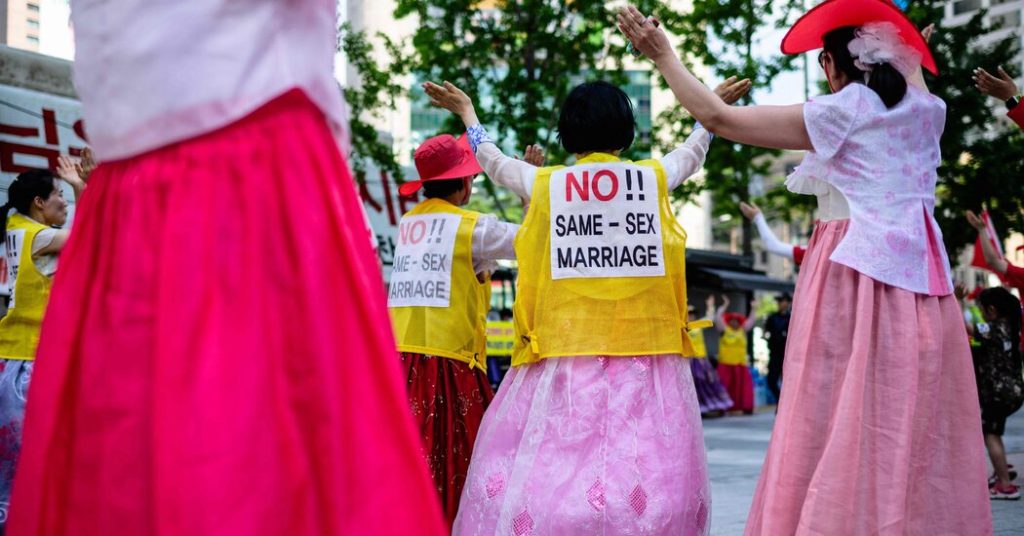Following a significant election win by South Korea’s liberal opposition, which sparked fears of a shift towards what some describe as a “homosexual dictatorship,” there has been a surge in efforts to remove regional bylaws protecting young people from discrimination, including based on sexual orientation and gender identity. These bylaws have faced criticism for allegedly prioritizing students’ rights over teachers’ rights, but it is clear that the underlying agenda is anti-gay. Despite ongoing efforts by anti-gay protesters and a powerful Christian lobby, there is widespread support for equality legislation in South Korea, as indicated by a recent survey showing that 67 percent of the population favors such measures.
The Christian lobby, primarily consisting of Protestant denominations, has been successful in obstructing the passage of a broad anti-discrimination law that would protect L.G.B.T.Q. individuals, women, people with disabilities, and racial minorities. This lobby has a significant influence on politicians and has managed to block several attempts to pass such legislation. The lobby’s messaging, which includes claims of a potential homosexual dictatorship and threats to national security, has been utilized to justify their opposition to equality laws. This fearmongering has seen success, with the recent government overturning plans to include common-law couples in the legal definition of “family” and removing terms like “sexual minorities” and “gender equality” from the national school curriculum.
The anti-L.G.B.T.Q. campaign has intensified in recent years, leading to censorship, targeting of Pride events, and other discriminatory actions against the L.G.B.T.Q. community. Concerns raised by international organizations and the United Nations about the inadequate protections for minority groups have largely been ignored by successive governments. The Christian lobby’s influence has led to the stalling of legislative efforts to enact anti-discrimination laws, citing a lack of social consensus, despite widespread public support for such measures.
The Christian lobby’s focus on countering equality legislation may stem from concerns about the declining interest in Christianity in South Korea and the need for a unifying enemy. The lobby has framed discussions on discrimination as a threat to their freedom of speech and religion, arguing that any laws protecting L.G.B.T.Q. individuals would go against their interpretation of the Bible. Opposition lawmakers who have advocated for equality have faced backlash and threats, indicating the hostile environment for those promoting inclusive legislation.
The implications of the Christian lobby’s anti-L.G.B.T.Q. crusade extend beyond the L.G.B.T.Q. community to other minority groups in South Korea, including foreigners, migrant workers, people with disabilities, and North Korean defectors who lack clear protections from discrimination under the law. The push for equality is seen as a broader fight for societal rights and protections for all marginalized groups. As the anti-equality campaign continues to gain momentum, it serves as a warning sign for the erosion of rights and freedoms in South Korean society, highlighting the need for ongoing advocacy and support for inclusive policies.


